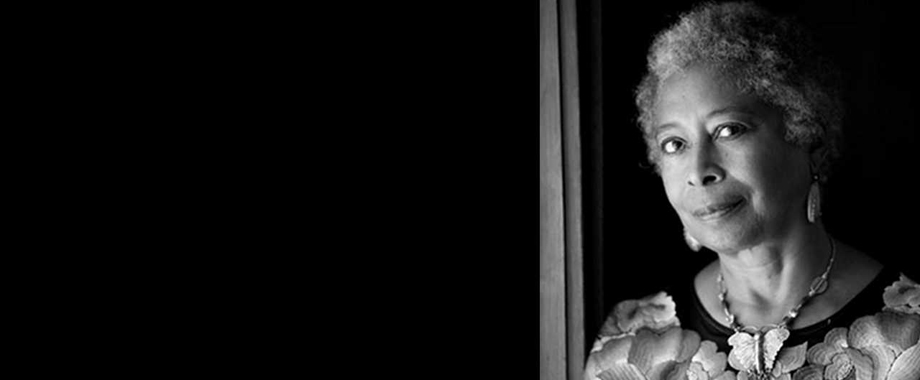
NEW YORK (AP) — Alice Walker, who turns 70 later this month, is thinking about her legacy.
Over the past few years, the Pulitzer Prize-winning author has donated her papers to Emory University, permitted “The Color Purple” to be released as an e-book and reached a deal with Simon & Schuster to publish excerpts from journals she has kept for decades. Walker also participated in the documentary “Alice Walker: Beauty in Truth,” scheduled to air Friday night on PBS stations as part of the “American Masters” series.
“I don’t have this feeling that 70 is really old,” says Walker, who notes one ancestor lived to 125. “But I do feel it’s helpful if you’re thinking about the coming generations to leave your work in a form that people can relate to.”
Interviewed recently by telephone, Walker said one reason she agreed to appear in the film is because the director, Pratibha Parmar, is a friend. Parmar, also interviewed recently, said she was inspired to make the documentary a few years ago after viewing DVDs of other “American Masters” projects.
“It seemed crazy not to have a film on Alice, given the impact she’s had with her life and her writing,” said Parmar, who in the 1990s worked with Walker on the film and book “Warrior Marks,” about female genital mutilation in Africa.
As “masters” go, Walker is hardly an austere, Olympian figure. A longtime feminist and political activist, she has been denounced for not allowing “The Color Purple” to be translated into Hebrew (in protest of Israel’s treatment of Palestinians) and accused of demeaning black men in “The Color Purple,” but celebrated for fighting racism and sexism and writing candidly about abortion, incest and domestic violence.
The film closely tracks Walker’s childhood on a former Georgia plantation, when money was so scare her mother lined her own bedroom with paper bags; her years as a scholarship student at Spelman College; her brief marriage to the Jewish civil rights activist Melvyn Leventhal (“We were prepared to die,” she says in the film); and her long and diverse career as an author.
Walker has written more than 20 books, including poetry, essays, short stories and the novels “The Third Life of Grange Copeland,” inspired in part by the lives of her parents, and “Meridian,” based on Walker’s years in the civil rights movement. But she’s best known for “The Color Purple,” a 1982 novel for which she drew upon family stories to tell of a young girl in rural Georgia and her struggle for independence after being raped by her father and beaten by her husband. The book and film adaptation, which came out three years later, led to such harsh and prolonged protests about the portrayal of black men that Walker later wrote a book about it.
“It feels like ignorance and ignorance is our greatest adversary,” she said of the criticisms. “I think ‘The Color Purple’ is so bursting with love, the need for connection, the showing of the need for connection around the globe.”
The film includes interviews with Sapphire, Gloria Steinem, “Color Purple” director Steven Spielberg and producer Quincy Jones, and her former husband.
Absent, but much discussed and seen in photographs, is Walker’s estranged daughter, Rebecca Walker. The younger Walker has denounced her mother for neglecting her and for trying to convince her that “raising children and running a home were a form of slavery.” The two have had little communication in recent years.
“I came very low down in her priorities,” Rebecca wrote in 2008, “after work, political integrity, self-fulfillment, friendships, spiritual life, fame and travel.”
In the documentary and during her interview, Alice Walker expressed hurt and bafflement over the rift, saying that she and her daughter had been close for much of their lives, a point of view supported by Steinem and Parmar. The author said she had been reluctant to discuss her daughter in public, but changed her mind.
“It was a way to clarify, as far as I was able, what my own position is in what really is a disaster,” Walker said. “You bring children into the world. You love them with heart and soul. But, as (author) Tillie Olsen told me, ‘You have your own children and do the best you can, until they are able to get out in the world. And then the world takes over.'”
Asked if she expected her daughter would see the film, Walker said, “I’m sure she will. I think she’d be very interested, at least on some level.”
Rebecca Walker, herself an author and a feminist, did not respond to an email from The Associated Press.
In the documentary, Alice Walker is filmed everywhere from rural Georgia and her home in Northern California to Rwanda and a “Freedom Flotilla” in the Middle East. Through all the phases of her life and work, Walker said “the driving force was curiosity.”
“My mother refused to let ugliness be the identification of her existence, and she chose beauty whenever she could. I can see that in my own interest in other people around the world,” Walker said.
“When I was 18, I went to the Soviet Union. I kept hearing that America was planning to bomb them — lots of bombs were going to come down on these people. I went there not knowing anything, except that I thought the whole thing was stupid and that I wanted to see who these people were that we were going to bomb.
“Of course, I had a great time,” she added, laughing, “lots of vodka, lots of dancing.”


